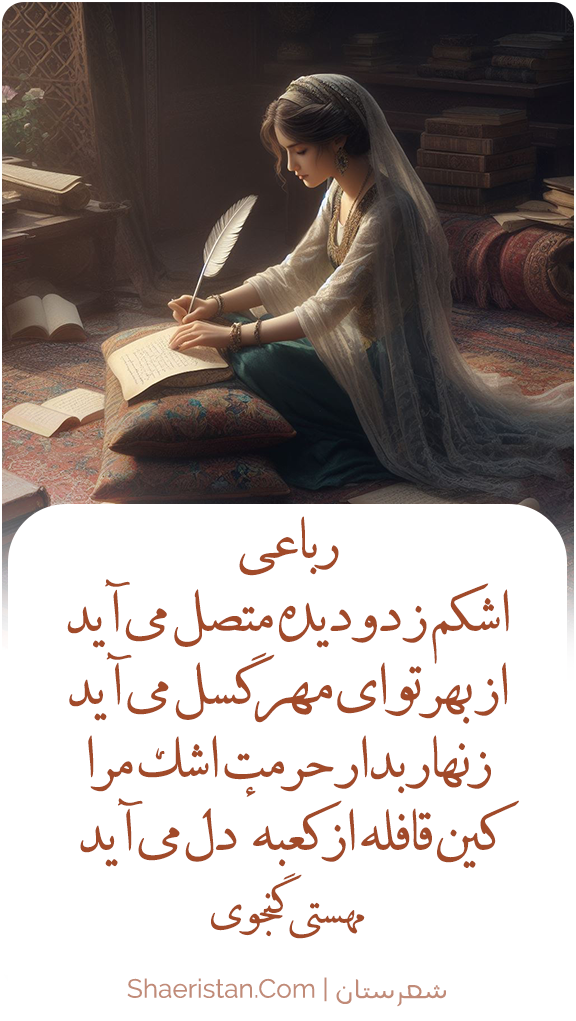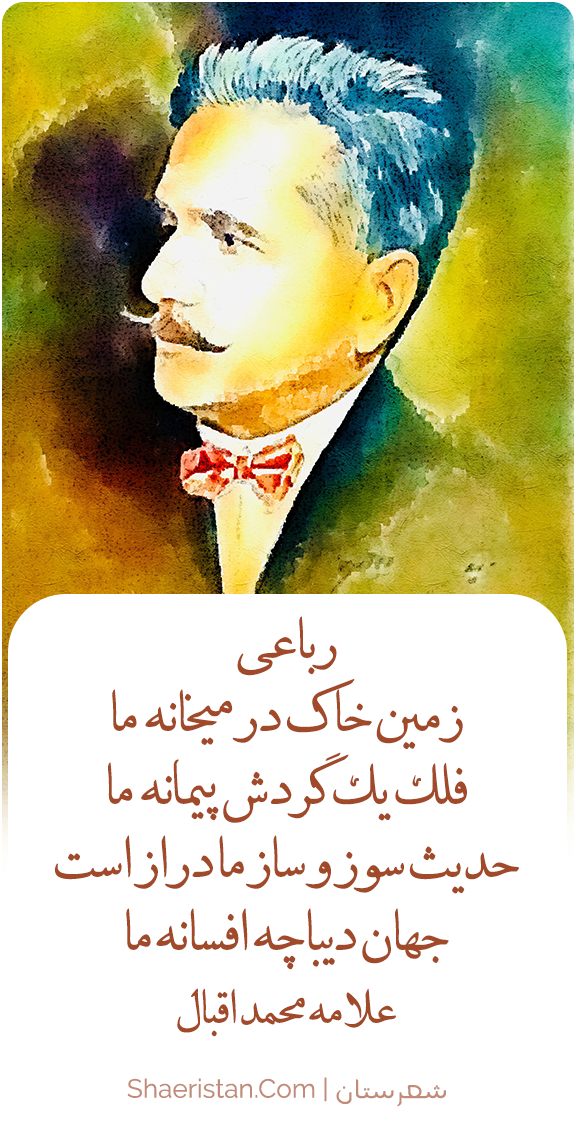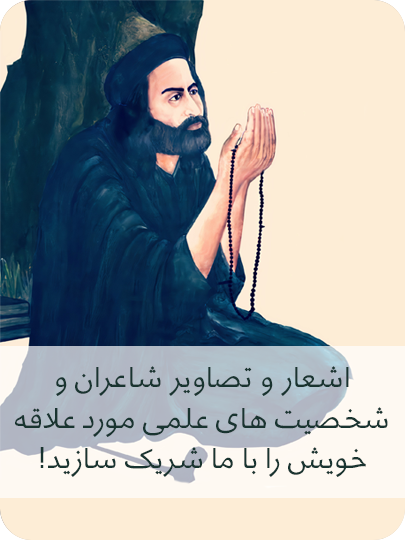omeone said: “Qadi Izz al-Din sends his greetings, and always speaks of you in the most approving terms.”
Rumi answered:
Whoever remembers us, and speaks us well,
Long may the world of their high merit tell.
When people speak well of others, those good words reflect back on themselves, and in the end they are praising and applauding their own essence. Those who cultivate the habit of speaking well of others are like gardeners who plant flowers and aromatic herbs around their houses – wherever they look out they see a beautiful display and are always in Paradise.
Whenever we speak well of another, that person becomes our friend. When we remember them, we remember a friend, and thinking of a friend is like being near flowers and aromatic herbs. It is refreshment and repose. But when we speak ill of others, those people become repulsive in our eyes. When we think of them or their image even enters our thoughts, it is the same as snakes or scorpions, thorns or thistles appearing before us.
Since you can have flowers, aromatic herbs and the meadows of Iram, why do you choose to walk among the brambles and thorns? Think well of everyone so that you always dwell amongst the fields and meadows. Once you become the enemy of everyone, the images of your foes surround you day and night like scorpions and snakes.
This is why the saints have love for all people and think well of whomever they meet – not for the sake of others, but solely for themselves. Since, in this world no one can escape talking about other people or encountering their images, the saints struggle to hold everything in their mind and memory in an amiable and positive light, so that hateful images will not block their way.
So, whatever you say of others returns to yourself. Mohammed said:
“Whoever does good, it is to their own gain,
And whoever does evil, it is to their own loss.
And whoever does an atom’s weight of good
Shall see it,
And whoever does an atom’s weight of evil
Shall see it.”
Someone asked a question about the following quote from the Koran:
“God declared:
‘I am setting in the earth a viceroy.’
The angels said:
‘What? Will You set there one
Who does corruption, and sheds blood,
While we proclaim Your praise and call You holy?’
“Since Adam had not yet come into the world, how could the angels know beforehand that the human race would be corrupt and shed blood?”
Rumi answered: There are two explanations – one traditional, and the other rational. The traditional version says that the angels read from the Preserved Tablet that a people would come forth who would act like this. The rational version says that the angels deduced by reasoning that people would come forth from the earth, and such people would have to bear the qualities of the earth, like animals. Although the spiritual element would be present in human beings, namely that they could speak, yet since animality would also be in them, they would by necessity be ungodly and shed blood, this being the heritage of being human.
There is still another answer. Some people say that angels, being pure reason and goodness, have no choice in anything they say or do. Like in a dream, if you have no choice of what you say or do, how can you be criticized when you utter unbelief in your sleep, or declare God is One, or if you commit adultery? Angels are like this in their waking state. People are the reverse of that – they have freewill, are lustful and passionate, desire all things for themselves, and are ready to shed blood to gain what they want. These are the attributes of animals. Thus the state of the angels is the opposite of people.
It is perfectly fine to say that the angels spoke in this fashion, even though there was neither speech nor tongue, because if they were endowed with words and gave an account of themselves, this is how they would speak. In this same way the poet writes, “The pool said, I am full.” Pools of course do not really speak, but the poet means that if the pool had a tongue, this is what it would have said.
Every angel has a tablet within them, and from that tablet, according to the degree of their own powers, they can read all that is to happen in the world and everything that will take place. When the moment arrives and what they have read actually comes into being, then their belief becomes stronger and their love and intoxication increase. They marvel at God’s majesty and omniscience. That increase of love and faith, that wordless and unexpressed wonder, is the angel’s praise of God.
Thus, a builder tells their apprentice, “In this house being built, so much wood will be used, so many bricks, so many stones, and so much straw.” When the house is complete and exactly that amount of material was used, neither more nor less, then the faith of the apprentice grows. The angels too are in a similar case.
Someone asked: “The Prophet had such majesty that God said, ‘But for thee I would not have created the heavens,’ and yet Mohammed said, ‘Would that the Lord of Mohammed had not created Mohammed.’ How can this be?”
Rumi answered: Let me offer a comparison for this to help you understand the meaning. In a certain village a man fell in love with a woman. The two lived together in happiness and pleasure. They grew fat and thrived on one another. They lived through each other, just as fish live in water. Many years they were together. Then one day God made them wealthy, bestowing on them many sheep, oxen and horses, gold, servants and slaves.
Because of their great fortune and prosperity, they set out for the city. Each purchased a royal palace, with horses and retinue – she in one part of the city and he in another. Once they reached their peak of wealth, they were no longer able to enjoy each other’s company. Their hearts smoldered away within them, and they uttered secret lamentations, being unable to speak. The consuming fire in them became so violent that they entirely perished in the flames of separation. The torture of their grief passed all bounds. Finally their longing was heard by God.
Their horses and sheep began to vanish, and little by little they were restored to their former condition. So, after a long while, they were reunited in their home village and resumed full enjoyment of their life together. When they recalled the bitterness of their separation, they cried, “Would that our Lord had never granted us such wealth.”
As long as Mohammed’s soul was dwelling in the world of holiness and union with God, he grew and thrived, plunging about in that sea of compassion like a fish. But, in this earthly world, even though he was endowed with the rank of prophet and guide to humanity, and granted greatness, majesty, fame and a large following, still on returning to that former joyous life he said, “Would that I never became a prophet or came into this world.”
All these sciences, struggles and acts of devotion, in comparison to the merit and majesty of God, mean no more than bowing once, performing a service and then leaving. Even if you moved the whole Earth with your heart to serving God, it would amount to the same as bowing once to the ground. For God’s merit and graciousness existed before your life and service. Did He bring you forth, give you existence, and make you capable of service and worship that you should boast of serving Him? These services and sciences are just as if you carved little shapes of wood and leather, then came to offer them up to God, saying, “I like these little shapes. I made them, but it is Your job to give them life. If You give them life, You will make my works live. Or, You do not have to – the command is entirely Yours.”
Abraham said, “God is He who gives life and death.” Nimrod said, “I give life and death.” When God gave Nimrod kingship, he deemed himself omnipotent as well, not attributing this credit to God. Nimrod said, “I too bring life to some and cause others to die, and what I desire throughout my kingdom comes from my knowledge.” When God bestows knowledge, sagacity and shrewdness, people claim all credit for themselves, saying, “Through my skill and abilities, I gave life to these actions and have attained ecstatic joy.” Abraham said, “No, it is God who gives life and brings death.”
Someone said: “Abraham said to Nimrod, ‘My God is He who brings up the sun out of the east and sends it down in the west. God brings the sun from the east. If you claim to be a god, then do the reverse.” But then Nimrod compelled Abraham to abandon this point, and Abraham left his first argument and Nimrod’s rejoinder unanswered, embarking upon another proof.”
Rumi answered: Others have talked nonsense about this, and now you too are talking nonsense. Abraham gave one and the same argument in two different forms. You have misunderstood, and so did they. There are many meanings underlying this statement. One meaning is this; that God brought you out of the concealment of non-existence from your mother’s womb. Your “east” was your mother’s womb. From there you rose, and you will go down into the “west” of your tomb. This is precisely the first statement, only expressed in another way: “He gives life and brings death. Now, if you are able, bring forth life from the west of the tomb, and send it back to the east of the womb.”
That is one meaning – here is another: Through obedience, strenuous effort, and noble actions the Gnostic attains illumination and spiritual intoxication, but through the abandonment of obedience and effort their happiness goes down like the sinking sun, therefore these two states are their “east” and “west.” “So, if you are able to bring life into a state of death through abandonment of God, corruption and disobedience, then out of this setting sun manifest the illumination that only rises out of obedience.”
But that is not the job of the servant, and the servant will never be able to do it. That is God’s job; for if He wishes He causes the sun to rise from the west, and if He wishes from the east.
The unbeliever and the believer both express the praises of God. For God has promised that anyone who chooses the right road and practices right action, following the sacred law and the way of the prophets and saints, shall be granted happiness, illumination and life. If they do the reverse, they will be granted darkness and fear, pits and suffering. Since both believer and unbeliever choose as they do, and what God has promised comes to pass precisely, neither more nor less, then both are proclaiming the praises of God – the believer with one tongue, and the unbeliever with another. How great that difference is between the praises of one, and the praises of the other!
For instance, a thief commits a theft and is hung on the gallows. That thief is a preacher to the world, saying, “Whoever commits a theft, this is what becomes of them.” On another person, the king bestows a robe of honor due to their trustworthiness. They are also a preacher to the world. But the thief preaches with one tongue, and the trusty servant with another. Consider the difference between these two preachers!






